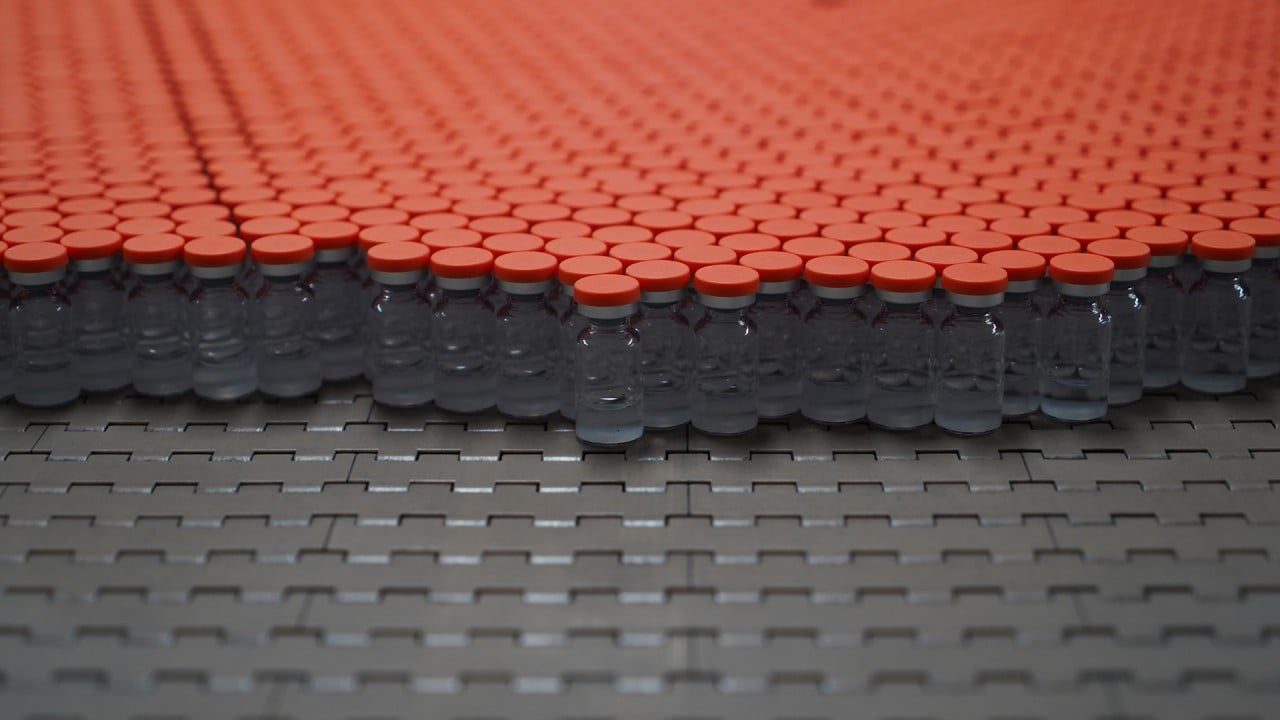
Coronavirus: Brazil study finds Sinovac far less effective at reducing deaths in elderly
- AstraZeneca was found to be better at preventing infections, with a 70 per cent lower risk compared to 54 per cent for Sinovac
- Research tracked nearly 61 million people who have received one of the two vaccines, but it has not been peer-reviewed
The Sinovac shot was meanwhile found to provide far less protection against the risk of death in people aged over 80. It was 35.4 per cent effective in that age group, compared to 80 per cent for younger cohorts.
The study – involving nearly 61 million people who were inoculated in a vaccination drive between January and June – was posted to preprint server medRxiv.org on Wednesday and has not been peer-reviewed.
It comes as Brazil’s health ministry announced booster shots will be available for people with weakened immune systems and those aged over 70, but they do not include the Sinovac jab.

02:35
Inside a plant in China producing the WHO-approved Sinovac Covid-19 vaccine
For the study, researchers from the Goncalo Moniz Institute and Federal University of Bahia in Brazil and the London School of Hygiene and Tropical Medicine tracked people who had received at least one dose of the two vaccines in the period. They looked at how effective they were at preventing infection, hospitalisation, intensive care and death.
More than 38 million people had received the AstraZeneca vaccine through its local partner the Oswaldo Cruz Foundation, while 21 million had Sinovac via its partner the Butantan Institute.
Of the 4.1 million who were fully inoculated with AstraZeneca, a 70 per cent lower risk of infection was observed. They had an 86.8 per cent reduced risk of hospitalisation, 88.1 per cent less risk of being admitted to intensive care, and a 90.2 per cent lower risk of death.
The 18 million people who were fully vaccinated with Sinovac were found to have a 54.2 per cent reduced risk of infection. They had a 72.6 per cent lower risk of hospitalisation, 74.2 per cent less risk of being admitted to intensive care, and a 74.09 per cent lower risk of death.
In the study, the researchers said Brazilian hospitals were struggling to cope with patient numbers at a time when Sinovac was the main vaccine being used, and that could have had an impact on death rates. “During the vaccination campaign, Brazil experienced health system collapse in several states, which may have influenced death rates, especially between February and May, likely affecting [Sinovac’s] CoronaVac estimates more markedly due to its greater availability … in the early stages of the vaccination programme,” they wrote.
The researchers concluded that differences in effectiveness between the two vaccines could be related to the different technologies they use and how well they trigger an immune response.

